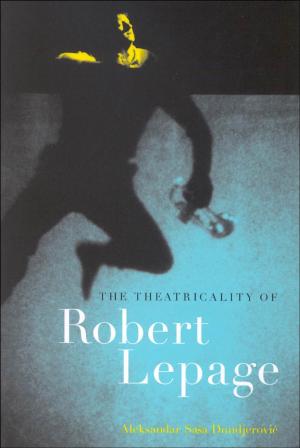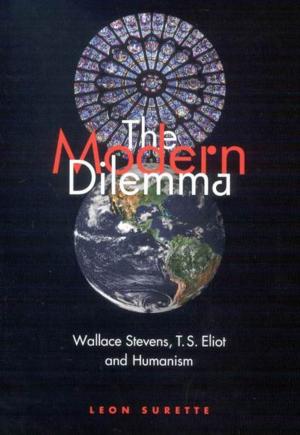From Literature to Biterature
Lem, Turing, Darwin, and Explorations in Computer Literature, Philosophy of Mind, and Cultural Evolution
Fiction & Literature, Literary Theory & Criticism| Author: | Peter Swirski | ISBN: | 9780773589926 |
| Publisher: | MQUP | Publication: | October 1, 2013 |
| Imprint: | MQUP | Language: | English |
| Author: | Peter Swirski |
| ISBN: | 9780773589926 |
| Publisher: | MQUP |
| Publication: | October 1, 2013 |
| Imprint: | MQUP |
| Language: | English |
From Literature to Biterature is based on the premise that in the foreseeable future computers will become capable of creating works of literature. Among hundreds of other questions, it considers: Under which conditions would machines become capable of creative writing? Given that computer evolution will exceed the pace of natural evolution a million-fold, what will such a state of affairs entail in terms of art, culture, social life, and even nonhuman rights? Drawing a map of impending literary, cultural, social, and technological revolutions, Peter Swirski boldly assumes that computers will leap from mere syntax-driven processing to semantically rich understanding. He argues that acknowledging biterature as a species of literature will involve adopting the same range of attitudes to computer authors (computhors) as to human ones and that it will be necessary to approach them as agents with internal states and creative intentions. Ranging from the metafiction of Stanislaw Lem to the "Turing test" (familiar to scientists working in Artificial Intelligence and the philosophers of mind) to the evolutionary trends of culture and machines, Swirski's scenarios lay the groundwork for a new area of study on the cusp of literary futurology, evolutionary cognition, and philosophy of the future.
From Literature to Biterature is based on the premise that in the foreseeable future computers will become capable of creating works of literature. Among hundreds of other questions, it considers: Under which conditions would machines become capable of creative writing? Given that computer evolution will exceed the pace of natural evolution a million-fold, what will such a state of affairs entail in terms of art, culture, social life, and even nonhuman rights? Drawing a map of impending literary, cultural, social, and technological revolutions, Peter Swirski boldly assumes that computers will leap from mere syntax-driven processing to semantically rich understanding. He argues that acknowledging biterature as a species of literature will involve adopting the same range of attitudes to computer authors (computhors) as to human ones and that it will be necessary to approach them as agents with internal states and creative intentions. Ranging from the metafiction of Stanislaw Lem to the "Turing test" (familiar to scientists working in Artificial Intelligence and the philosophers of mind) to the evolutionary trends of culture and machines, Swirski's scenarios lay the groundwork for a new area of study on the cusp of literary futurology, evolutionary cognition, and philosophy of the future.















